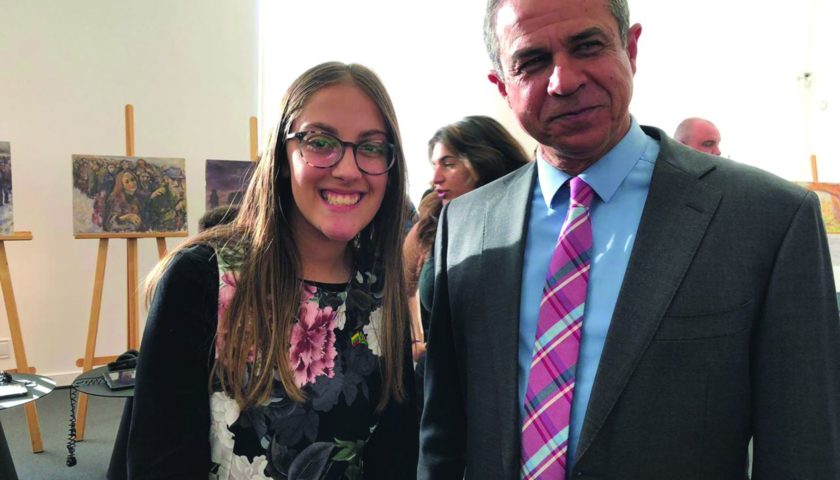The little-known story of how the Bulgarian Tsar saved nearly 50 000 Jews during the Holocaust
By Ilan Preskovsky
Considering the tumultuous history of the country in the early (and indeed later) 20th Century, it is perhaps fitting that Tsar Boris III of Bulgaria was a complicated man and a, perhaps, even more complicated leader. He allied himself with Nazi Germany during World War II and even allowed a pair of his ministers to draft and enact laws in Bulgaria that would have much the same effect as Germany’s Nuremberg laws in heavily restricting Jewish rights. He also did nothing to stop initial deportations of some eleven thousand Jews from Bulgaria-occupied Thrace and Macedonia to the death camps of Treblinka and Majdanek. All of this on top of the fact that, since a coup in 1935, he became de-facto dictator of the oft beleaguered country until his death in 1943.
And, oh yes, he also saved nearly fifty thousand Bulgarian Jewish lives.
Ironic understatement aside, though, this is, to say the very least, nothing short of mind-boggling. Here we have someone who, at first glance, looked set to be yet another in a long line of European leaders who, along with a whole host of other sins, would go down in history as a true enemy of the Jewish people. And yet, at the eleventh hour, he issued a decree that saved at least 48 000 Jews – a number that, to put it in perspective, is not far off from the total Jewish population in South Africa in 2019 – from being transported out of Bulgaria to Nazi concentration camps and almost certain death.
This is the incredible story of how that happened; of a leader who completely reversed his legacy in a single, truly heroic moment and the extraordinary “ordinary” people of Bulgaria who pushed him in the right direction.
A Stormy Rise to Power
Tsar Boris III originally succeeded his father, Ferdinand I, to power in 1918 after the country’s crushing defeat in the First World War, but the first few years of his reign were marked by dissent, war, assassination attempts, and national unease. Between Bulgaria allying itself with the losing side during World War I and a no less embarrassing defeat during the Second Balkan War of 1913, trust between the Bulgarian people and their leaders was at an all-time low and little from these early years of Boris III’s reign did anything to change that.
Boris’ lowpoint, however, no doubt came during a military coup in 1934 by the Zveno military organisation where all political parties in Bulgaria were liquidised and Boris was made into little more than a puppet for the new regime. This latest embarrassing defeat was to be short-lived, however, as he successfully staged a counter-coup the next year and took almost sole control of the country. He did re-establish a parliament, but without political parties and the parliament’s powers were limited to the whims of the King. Still, despite Boris being a dictator, the country flourished under his rule from then until the early days of World War II.
In much the same way that Germany’s defeat in World War I led to a country crippled both economically and spiritually, turning to someone like Adolf Hitler in hope of salvation, Boris III hitched his wagon to Nazi Germany in order to right the perceived wrongs done to Bulgaria by their own defeat in the War and the ensuing harsh conditions of the Treaty of Versailles. In particular, they had lost Western Thrace to Greece and the southern plains of Dobrudja to Romania and, in the early days of the war, Hitler saw to it that both territories were restored to Bulgaria. Soon after that, Boris joined force with the Axis powers, which both returned even more land to Bulgaria (in this case Macedonia) and spared Bulgaria the seemingly unstoppable destructive force of the German army who had just recently conquered their neighbouring countries of Greece and Yugoslavia.
A Troubled Alliance
The first hints that Boris III and Bulgaria would not bow to every demand made by Germany came in the form of his refusing to send Bulgarian troops to fight against the Soviets on the Eastern Front. This only further showed Boris’ keen understanding of world politics and his commitment to the security of his country. He knew full well that, should the Germans lose this war too, Bulgaria would be at the mercy of the USSR, which was already a military force that rivalled the Germans and would see no issue with obliterating Bulgaria should it see the country as an enemy.
While the public at large supported Boris, whom they called the Great Unifier, for obvious reasons, things quickly started going sour for Bulgaria’s Jewish population. In December 1940, Bulgarian Prime Minister, Bogdan Filov, and Minister of the Interior, Petur Gavroski, put their sympathies with the Nazis into law as they passed the “Law for the Protection of the Nation”, which effectively quashed Jewish rights, imposed higher taxes on them, and forbade inter-marriage between Jews and non-Jews.
Worse, in early 1943, with Bulgaria once again controlling large parts of Thrace and Macedonia, one of the Nazi regime’s most notorious and purely evil captains, Theodor Dannecker, worked with the anti-Semitic “Commissar for Jewish Affairs”, Alexander Belev, to deport 20 000 Jews, with more to follow: eight to nine thousand from Bulgaria itself and eleven to twelve thousand from their newly re-conquered territories. Immediately sent to their deaths were 11 343 Jews from Macedonia and Thrace, with the remaining Bulgarian Jews scheduled to be deported shortly after that.
The Voice of the People
Making up less than one percent of the total population, the Jewish community in Bulgaria had always been fairly small, but it had also enjoyed the sort of convivial relationship with its neighbours that most Eastern European Jewish communities had only dreamed of. Bulgarians, in general, were known for being extremely tolerant towards those of other ethnicities and creeds and they had keenly accepted the mostly working-class Jewish population into their society. This did not change with the outbreak of World War II despite their government and king’s new policies and alliance with the Nazis.
Presumably because of their gratitude to their Tsar for saving them from destruction by the Nazis, the Bulgarian public didn’t protest too harshly against the initial anti-Semitic laws and even the deportation of Jews from Macedonia and Thrace had only slight opposition. Even then, there was already a growing support for the Jews within the government itself, within the public at large and, most especially, within the Orthodox Church whose clergy had denounced the inhumane treatment of the Jews straight from the off.
When news spread that there were plans to start deporting Jews from Bulgaria itself, support for the Jews went from a quiet simmer to full boil. Protests broke out in the streets of Bulgaria to put a stop to such a move and Tsar Boris was inundated with letters from the public begging him to defy Hitler and save the country’s Jews from extermination. Even those who had supported the expulsion of Jews from Thrace and Macedonia protested the deportation of Jews from the Bulgarian mainland.
More than anyone else, though, the people who ultimately probably changed the Tsar’s mind the most were a pro-Jewish group in parliament led by Dimitar Peshev, and the highly respected clergy of the Orthodox Church. All of these had Tsar Boris’ ear and, in mid-1943, when the time came for the deportations of Bulgarian Jews to begin, Boris defied Hitler and put a “temporary” stop to the deportations, claiming that he needed Jewish labour to help build the roads.
Tsar Boris III was summoned to meet with Hitler in Germany in August 1943, where the two allegedly got into a heated debate about the “Jewish question” and Boris’ refusal to attack the Soviet forces. Two weeks later, Boris died of what are officially unknown causes, but are widely believed to be by a slow-acting poison administered to him during his meeting with Hitler. Nonetheless, even after his death, his policy of needing the Jews to build roads (whether they actually did this seems to be up for debate) remained and no Jews were deported from Bulgaria for the rest of the war.
As Vesko Marinov, a Bulgarian expat now living in South Africa, explains, “Until the end of the 1980s, the communist regime [that controlled the country from 1946 to 1989] silenced any mention of what Boris III did for the Jews of Bulgaria.” This isn’t too surprising, as the communists no doubt wouldn’t want to celebrate any of the heroic deeds done by the monarchy they supposedly “saved their people from”. With the fall of the Iron Curtain, though, the truth has finally started to come out and Tsar Boris, along with the heroes of the Bulgarian Orthodox Church and parliamentary figures like Dimitar Peshev, has finally been recognised for his crucial role in saving nearly 50 000 of his Jewish subjects.
For further reading on this subject, get hold of The Fragility of Goodness: Why Bulgaria’s Jews Survived the Holocaust by Tzvetan Todorov.
Thanks to Vesko Marinov for this story idea.





